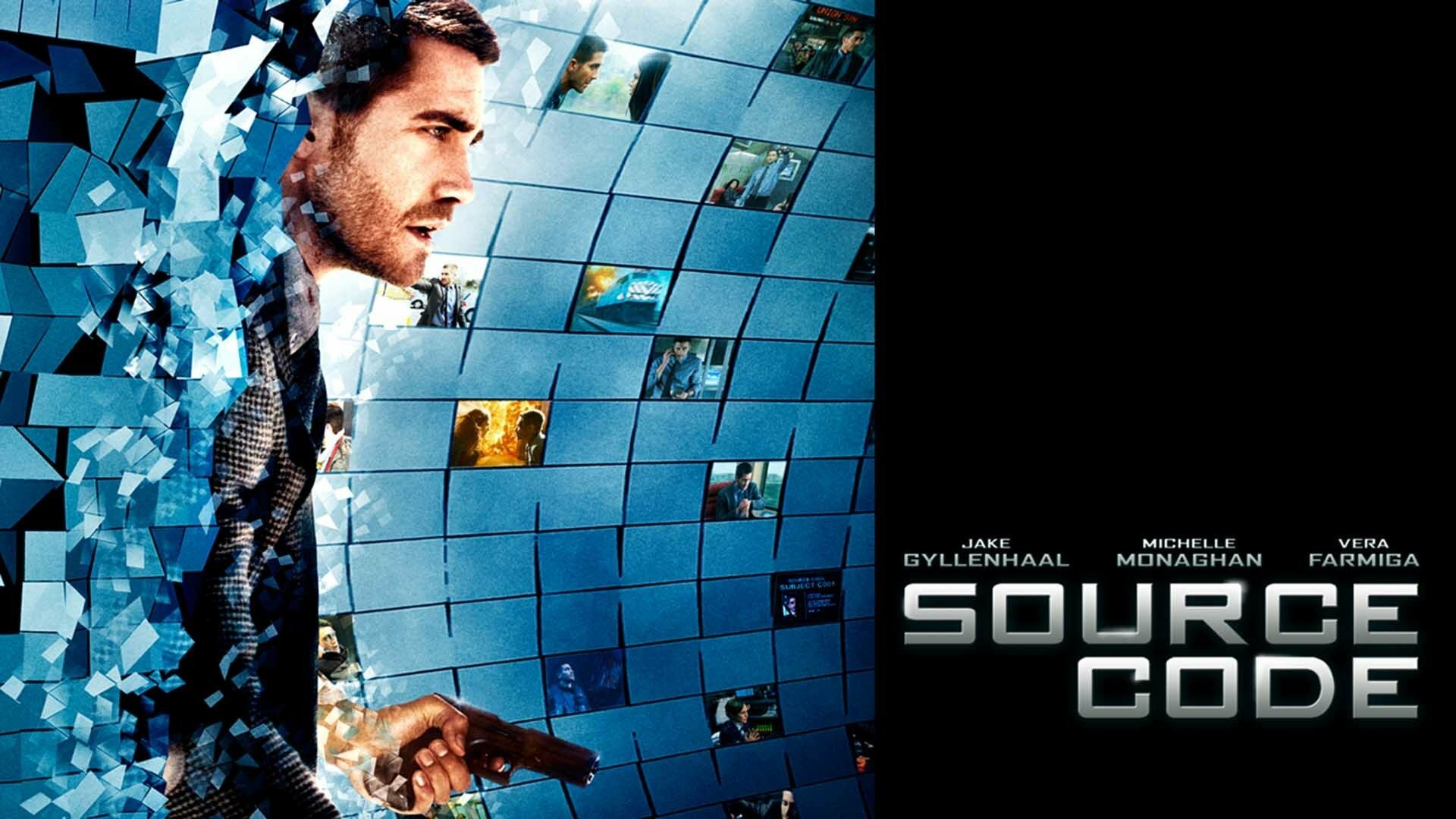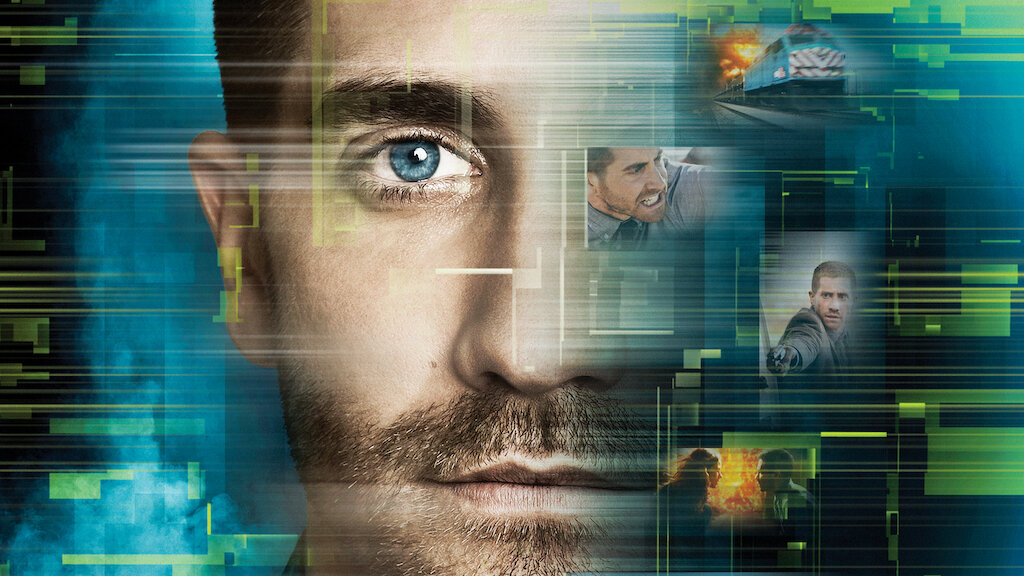Source Code (2011)

Source Code (2011), directed by Duncan Jones, is a gripping science fiction thriller that blends elements of time travel, psychological drama, and action into a compelling narrative. With a cast led by Jake Gyllenhaal, Michelle Monaghan, and Vera Farmiga, the film explores themes of identity, sacrifice, and the nature of reality through a high-stakes, mind-bending premise. Source Code offers both intellectual stimulation and emotional depth, making it a standout entry in the genre.
The film centers on Captain Colter Stevens (Jake Gyllenhaal), a U.S. Army helicopter pilot who finds himself in a mysterious and disorienting situation. Stevens wakes up to discover he is inside the body of a stranger on a commuter train that is about to be destroyed in a terrorist bombing. He learns that he is part of a top-secret government experiment called “Source Code,” which allows him to inhabit the last eight minutes of another person’s life repeatedly in order to identify the bomber and prevent future attacks.
As Stevens repeatedly relives the last eight minutes of the train journey, he encounters various passengers and pieces together clues about the identity of the bomber. Each iteration of the eight minutes provides him with new insights and information, allowing him to inch closer to solving the mystery. Along the way, Stevens also grapples with questions about his own identity and the nature of the Source Code project, which is operated by a government agent, Goodwin (Vera Farmiga), and a scientist, Dr. Rutledge (Jeffrey Wright).

The film’s narrative structure is driven by Stevens’ attempts to solve the case within the constraints of the Source Code. The plot alternates between high-tension sequences on the train and the procedural elements of the investigation. The film builds suspense and intrigue as Stevens uncovers new layers of the mystery and confronts the ethical implications of the Source Code technology.
Source Code explores several themes that are central to its narrative and emotional impact. One of the primary themes is the nature of identity and personal agency. As Stevens inhabits the body of another person, he must come to terms with the identity of the individual he is embodying and the consequences of his actions. The film examines the concept of self and the extent to which one’s identity is shaped by external circumstances and choices.
Another significant theme is the concept of sacrifice and the quest for redemption. Stevens’ journey involves not only solving the terrorist threat but also grappling with his own past and seeking to make amends for his own actions. His dedication to preventing the bombing and his efforts to save the passengers reflect his desire for redemption and his commitment to a higher purpose.

The theme of time and its manipulation is also central to the film. The Source Code technology allows for a unique exploration of time, presenting the idea that the past can be revisited and altered to some extent. The film raises questions about the nature of reality and the potential consequences of tampering with time and memory.
Character development is a key aspect of the film, with Stevens serving as the central figure. Jake Gyllenhaal’s portrayal of Colter Stevens captures the character’s confusion, determination, and emotional depth. Stevens’ evolution throughout the film reflects his growing understanding of his situation and his increasing resolve to make a difference.
The visual and cinematic style of Source Code plays a crucial role in creating its suspenseful and immersive atmosphere. The film’s cinematography, handled by Peter Chapan, captures both the claustrophobic environment of the train and the high-stakes tension of the Source Code experiments. The use of close-ups and dynamic camera angles enhances the sense of urgency and disorientation experienced by the protagonist.

The film’s visual effects and action sequences contribute to its overall impact. The depiction of the train explosions and the repetitive nature of the Source Code sequences are rendered with a combination of practical effects and CGI, creating a realistic and intense experience. The film’s pacing is brisk, maintaining a sense of momentum and engagement throughout the narrative.
The lighting and color palette of the film emphasize its tone and themes. The use of muted colors and dim lighting reflects the film’s darker elements, while occasional bursts of bright light highlight key moments of revelation and action. The visual style complements the film’s exploration of time and identity, enhancing the overall atmosphere and impact.
The performances in Source Code are a key strength of the film, with the cast delivering strong and nuanced portrayals. Jake Gyllenhaal’s performance as Colter Stevens is central to the film’s success. Gyllenhaal captures the character’s emotional journey and sense of urgency, providing a compelling and relatable protagonist.
Michelle Monaghan’s portrayal of Christina Warren, a fellow passenger on the train, adds emotional depth and complexity to the film. Monaghan’s performance conveys the character’s vulnerability and connection to Stevens, enhancing the film’s exploration of relationships and personal sacrifice.
Vera Farmiga’s role as Goodwin and Jeffrey Wright’s portrayal of Dr. Rutledge provide strong supporting performances that add credibility and tension to the film. Farmiga’s character serves as a liaison between Stevens and the Source Code project, while Wright’s role as the scientist adds a layer of ethical ambiguity to the narrative.
The supporting cast, including the passengers on the train, delivers performances that contribute to the film’s characterization and emotional impact. Each character adds to the complexity of the situation and the overall narrative.
Source Code received generally positive reviews from critics and audiences, with praise for its inventive premise, suspenseful storytelling, and strong performances. The film was noted for its ability to combine science fiction elements with emotional depth, creating a compelling and engaging experience.

Critics appreciated the film’s exploration of complex themes and its ability to maintain suspense throughout the narrative. The film’s unique approach to time travel and its focus on character development contributed to its impact and success.
However, some reviews noted that the film’s premise could be challenging for viewers, requiring careful attention to fully appreciate its intricacies. Despite these criticisms, Source Code has been recognized for its creative and thought-provoking approach, making it a notable entry in the science fiction thriller genre.
Source Code (2011) is a compelling and innovative film that combines elements of science fiction, thriller, and drama into a unique and engaging narrative. Through its intriguing premise, strong performances, and exploration of complex themes, the film offers a thought-provoking and immersive cinematic experience. Duncan Jones’s direction and the cast’s performances contribute to the film’s impact, making Source Code a standout entry in the genre. As a blend of suspense, emotional depth, and intellectual stimulation, Source Code stands out for its ability to captivate and challenge audiences.












